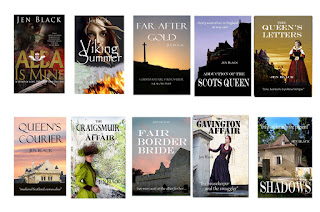Sometimes I think I waste my time on pointless
social media activity when I could be writing more of the next story. But then
I think I need Facebook and Twitter 'cos my readers are there. How else will
they ever get to know about me? Without paying out good money I don’t know any other way to grow a readership for my blog and books, and paying out goes against
the grain. If I were 25 and had a whole career ahead of me, then spending hard-earned
money on promotion would be a good idea. But I’m not 25, so it isn’t.
(Note to self: read Chris Syme’s post: “Taming the Social Media Beast.”)
Social media is often
useful. How else would I know the single dads and lonely widowers that
proliferate on Facebook are scammers doing what is known as “catfishing?”
OTOH, the constant stream of words can get
irritating, and that is a good time to take a break from both Fb and Twitter. I
know I’ll drift back, but the rest does me good, and I get more writing done. And see more of my other half!
If readers want to friend me, I welcome them, but I don’t beg for “likes.” Authors often
send out requests for me to like their page or book or whatever, but if the person
and their work is unknown to me, then I don’t respond. If I have
read the author and truly like their books, then I do.
“50 people who love your books and tell their
friends about them are worth a whole lot more than 500,000 fake followers
somebody bought from a click farm in Bangladesh.” (Until I read Anne Allan’s blog, which I dip into every now and then, I never knew about click farms anywhere.)
I often doubt that social media is any good for
selling books. Endless “buy my book” Tweets, or repeated quotes from your books
do not sell books anymore. I’ve often read that my social media should be 20%
marketing and 80% interesting, friendly stuff that’s useful to my readers. So I
try sharing funny memes, inspirational author quotes, and pics of my dog Tim; I’ve
shared grammar jokes, tales of my hols in rural France, and pics of Aidan
Turner and Rafa, but I’ve no way of knowing how much good it does me.
I’m told that if you Tweet that a book is free or
on sale, people notice. I once had 19,000 plus downloads on a free book, but
that was back in 2012, and I don’t think that sort of rush happens anymore. But maybe I shall try it and see what happens. I must admit it is a while since I tried a "free" week.


